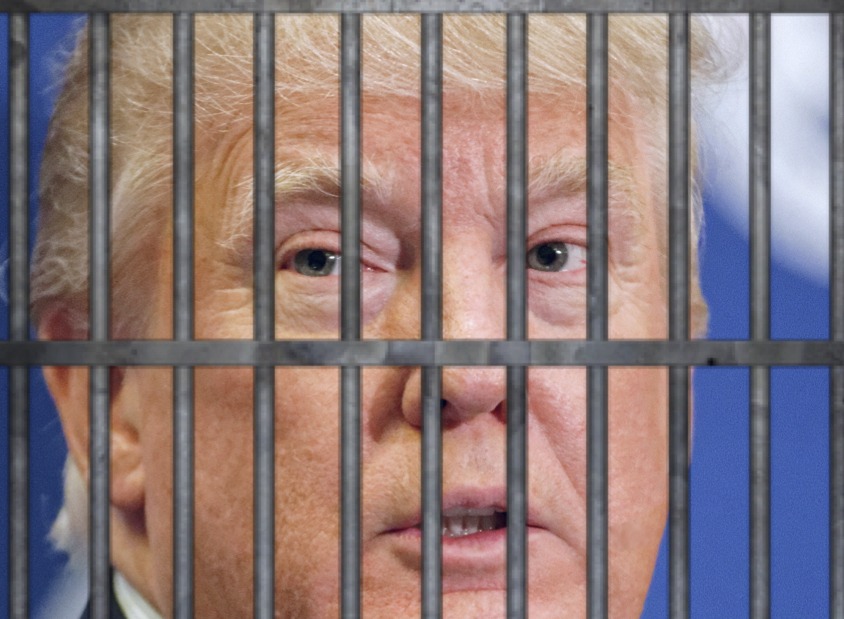Donald Trump’s criminal culpability

In all of Donald Trump’s pardons and commutations to date, sixty of the sixty-five have a personal connection. While the Constitution places no barrier on pardons or commutations and no standard by which they must adhere, it is nevertheless so very, er, Trumpian — for lack of a better word — that most of Donald Trump’s pardons and commutations could be construed as having a corrupt purpose. Cory Booker puts it even more plainly in his recent tweet: “A pardon is supposed to be an instrument of justice — not a tool of corruption.”
In a recent interview with CBS, former fixer and hatchet man for Donald Trump Michael Cohen — who is currently serving an in-home three year sentence for fraud and lying to Congress during the Russia probe — gave his opinion about Trump’s perceived abuse of the presidential pardon. Cohen also used the opportunity to plug his book, “Disloyal,” which became a New York Times bestseller, and to plug his upcoming book which will, no doubt, also be a bestseller.
Before we proceed it’s important to say something about what I have come to call Albert Speer Syndrome, or A.S.S. for short. Its eponymous origins stem from Adolf Hitler’s architect and armaments minister Albert Speer. Speer avoided the hangman at Nuremberg by doing that rare thing for a Nazi, he admitted culpability and wrongdoing. Considering what Speer did to get before the judges at Nuremberg and the stakes involved it would be unseemly to shower Speer with too much praise. Cohen, equally afflicted with A.S.S., is certainly no exception.
Besides, we have not just the right but the duty to wonder what these men would have done had the evil entity they each so rabidly attached themselves to had succeeded and had cheerfully brought them both along with them. Had Hitler won the war would Speer have ever been ashamed of his role in bringing the monster to power? Had Trump never betrayed Cohen and instead kept him with him, would Cohen have ever come to his moment of moral clarity?
It’s a rhetorical question of course, and one we may never know the answer to. But we sure as hell have the right to wonder about it, and we also have the right to fashion out of it the grain of salt with which we take anything Mr. Cohen has to say. That said, having read Mr. Cohen’s book, I am inclined to believe him. But only just inclined. People afflicted with A.S.S. ought to be regarded with the justifiable suspicion they have earned.
Or as Cohen himself put it, “I truly believe that those who accepted Trump’s filth [i.e., Trump’s pardon] will have the stench of corruption following their name and their family’s name for decades to come.” Some of that stench, whether he admits it or not, also clings to Cohen.
The difference between what Cohen has to say and what Trump has to say boils down to — what else? — evidence. Cohen’s testimony in court and his final mea culpa before Congress has been backed by impressive mountains of evidence. “I think that everything I have said,” Cohen points out, “I have shown through documentary evidence to be [sufficiently] accurate that the New York State attorney general herself, Tish James, is using my statements in order to now [pursue various prosecutions.]” Cohen points out that Robert Mueller found him both credible and instrumental in completing his investigation. “So whether they believe me or not at this point in my life I don’t care,” Cohen opines. “I happen to know that what I’m saying is true.”
Cohen has the kind of insights and makes the kind of interesting connections that only old cronies can make. Trump waited till he was safely landed at Mar-a-Lago before releasing his latest flurry of pardons. “He used to do the same thing at the Trump organization,” Cohen declares, “right before Christmas when they would hand out Christmas bonuses he would take off and leave, and once he was either in flight or he was already down at Mar-a-Lago is when they would release all of the bonus checks. That way if you were unhappy with what you got you had no way to reach him.” Trump’s biggest concern right now is soon he will be out of office and there will be a “plethora of litigation and subpoenas that are going to be flying around that he cannot control any more with his corrupt attorney generally well as well as his corrupt people.”
The bottom line, as far as Cohen is concerned, is that Trump is going to face a mountain of legal issues once he leaves office, because “I have been questioned by the attorney general’s team on many occasions now as well as the District Attorney’s office … I know what it is they’re looking for.” That they will be prosecuting Donald Trump Cohen has no doubt.
Cohen cannot get into details because “it’s an ongoing investigation,” but, “it has to do with his finances, it has to do with his tax returns, it has to do with his properties, it has to do with the financial personal statements that he provided in order to obtain loans.” So if Cohen is right, Donald Trump is in significant civil and criminal jeopardy.
Cohen also thinks Trump is on the order of a billion dollars in debt. Trump, of course, calls Cohen a liar, and that is one of his more polite adjectives used by the one-term lame duck president. “The fact that Donald Trump calls me a liar,” Cohen avers, “should automatically mean that I’m telling the truth.” And, as ever, ladies and gentlemen, brothers and sisters, comrades and friends, stay safe.

Robert Harrington is an American expat living in Britain. He is a portrait painter.
